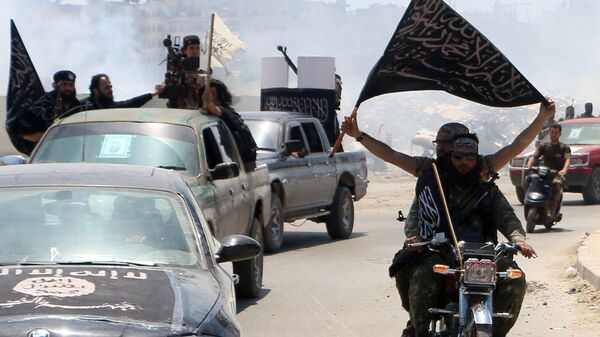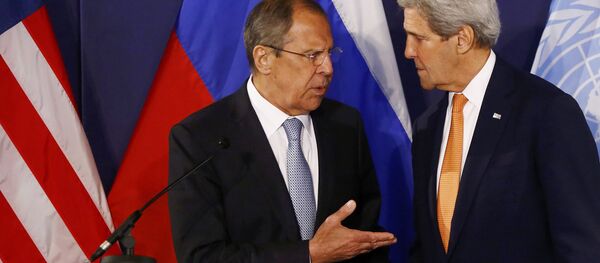On Friday Russian Foreign Minister Sergey Lavrov said that Russia and Turkey have reached a common understanding on the Syrian crisis, following a meeting with his Turkish counterpart Mevlut Cavusoglu.
As well as the Daesh terrorist group, Ankara has agreed that al-Nusra Front militants are terrorists. Moscow and Ankara are united in the request that moderate opposition groups leave areas controlled by terrorists.
"Anybody who doesn't want to be hit by an airstrike should leave the positions which are controlled by al-Nusra Front and Daesh. It's very simple. If there is a patriotic opposition group, a constructive opposition group, which is still located in areas under the control of terrorists, then that constructive opposition needs to order its forces to leave those areas," Lavrov said, RIA Novosti reported.
"Otherwise it (the group) will be considered to be an accomplice of al-Nusra Front or Daesh," he continued.
Fitsanakis said that in recent years Turkey has been unpredictable and made inexplicable foreign policy moves, such as turning a blind eye to the rise of Daesh in the region, and downing Russia's Su-24 bomber during anti-terrorism operations in November 2015.
"Now they seem to be siding with the Russian position, but in reality I think most of these maneuvers are aimed at a domestic audience within Turkey," Fitsanakis said.
"Because the domestic political situation in the country is very unpredictable and unsettled, I wouldn't yet make the point that this is a game-changing development, I would be cautious and wait and see what happens with Turkey."
"My take on this is that negotiations are likely to continue in secret for the time being, until some kind of major breakthrough is made, perhaps at some point in the future. We're more likely to see something like what happened in Korea in the 1950s, where at the end of the Korean War there was some kind of tacit agreement to stop shooting at each other, but the war never technically ended," Fitsanakis said.
Fitsanakis said that negotiations in Syria are complicated by the fact that many moderates have left the country.
"What's left on all sides are the hardliners. So I think we are actually more likely to see some kind of an open agreement between Washington and Moscow, but with the tacit, undeclared support of the Assad government and the opposition, with the exception of course of ISIS (Daesh)."




